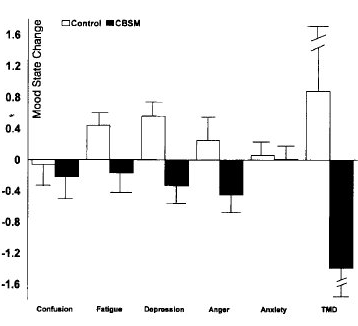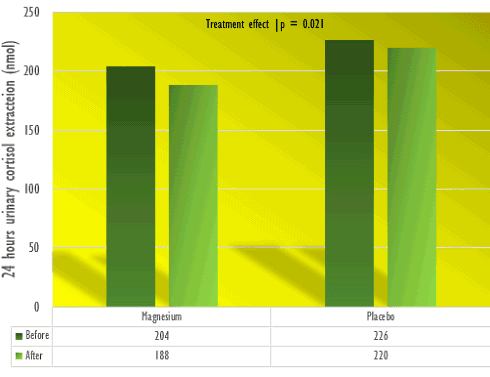|
Stress course lowers athletes' cortisol level
A simple psychological course lowers the cortisol level of athletes who do heavy training. The effect is so great that the athletes even felt better, write American sports scientists in an article that was published eleven years ago already in the Annals of Behavioral Science.
Cortisol
Cortisol [structural formula below] is a 'bad' hormone for athletes. Cortisol inhibits the action of insulin-like growth factors on satellite cells which may negatively affect continuous muscle regeneration following high intensity exercise. Cortisol suppresses the immune system and thus increases the chance of sickness. Cortisol increases the chance of injury.
Three reasons why sports scientists have been searching for years for techniques and substances that reduce the production of cortisol during and after intensive physical activity.
Study
In 1995 Frank Perna published a study that was done on American Olympic cyclists and rowers, which showed that the athletes produced more cortisol after a training session if they were experiencing stress in their lives. Three years later, in 1998, Perna took the first study a step further. If life stress increases cortisol production, would psychological techniques that therapists have developed for controlling stress be capable of lowering cortisol levels? Perna was curious.
To answer the question Perna did an experiment with 34 rowers who at that time were preparing for the competitive season and so were training heavily and often. Their cortisol levels were also higher than normal. Half of the athletes were given a course in cognitive-behavioural stress management (CBSM), and the other half got nothing. The course consisted of seven 45-minute sessions, during which the athletes were given information about what stress is, and learned visualisation techniques, relaxation techniques and ways of coping with stress.
Results
The figure below shows what happened to the morning cortisol levels of both groups after the course had ended.

The cortisol level of those who had taken the course was lower. These subjects also felt better, as the figure below shows.

In another study, published in 2003, Perna investigated the effect of CBSM on health and injuries. We'll discuss that tomorrow.
Source:
Ann Behav Med. 1998 Spring;20(2):92-8.
More:
Stress course does away with need for doctor 14.06.2009
Stressed out? Your cortisol level will explode after training 11.06.2009
Meditate for less cortisol, more testosterone and growth hormone after training 09.03.2009
Archives:
Blocking Cortisol
Psychology
|






